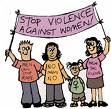Frelimo opens its 10th party congress Sunday in Pemba, 50
years after its first congress in Dar es Salaam in September 1962. 4000 people
are expected – delegates, invitees and media; a new Congress centre has been
built and all the hotel rooms in Pemba are booked by Frelimo.
The most important task of the Congress is to elect 64 members of the Central Committee; 116 members have already been elected at provincial level. The Congress will also elect the President of the party; controversially, Armando Guebuza is the only candidate proposed.
The first meeting of Central Committee will be held in Pemba immediately after the congress, and it will elect the Political Commission, which is the most powerful body in the party. That meeting of the Central Committee also elects the Secretary-General (presently Filipe Paunde) and secretary of the Verifiication Committee (now Eduardo Mulémbwe). Those two plus the party president are automatically members of the Political Commission. Frelimo rules only say that the Political Commission must have an odd number of members between 15 and 21.
The Congress does not select the Frelimo presidential candidate for the 2014 election; this will be done by the Central Committee next year. The shape of the Central Committee and of the Political Commission will give some indications of the choice of the next presidential candidate. Although not required, in practice the presidential candidate will need to be an elected member of the Political Commission.
Frelimo has been obsessive about unity since splits led to the assassination of Eduardo Mondlane in 1969. Debates are held inside the party and disagreements kept largely hidden. Few people have ever been expelled from the party; indeed, Frelimo actively tries to co-opt potential opposition leaders, which is one reason the opposition in Mozambique has always been so weak. And the unity is remarkable; in 2002 the Central Committee rejected a bid by Joaquim Chissano to stand again, choosing instead Armando Guebuza. Far from quitting Frelimo, Chissano campaigned for Guebuza (despite a personal dislike) and has remained active in the party.
Internally, however, Frelimo is divided in many directions. As well as Chissano and Guebuza factions, there are regional and language divisions, a split between younger and older members of the party, and divisions between those who see still see the party as promoting Mozambican development and those who want to use the party for their own advancement and enrichment. Thus votes are not predictable, because individuals are each part of several groups.
Two years ago Guebuza made moves to promote a change in the constitution to allow him to stand for a third term, but this was rejected by the party itself. Younger people said it was their turn, and it was time for the liberation war generation to retire.
Since then there has been substantial manoeuvring by Guebuza and his allies to keep power. The most important has been the decision of the party leadership to keep Guebuza as president of the party – meaning that for the first time, the President of the country will not be president of the party. Guebuza will want a President that he can control, and it is said that his candidate is Prime Minister Aires Aly.
The most obvious alternative candidate is former prime minister Luisa Diogo, who is popular with women in the party and would stand up to Guebuza. Agriculture Minister Jose Pacheco is also a possibility. Both are on the present Political Commission and would need to be re-elected by large votes if they are to be seen as serious possibilities.
Guebuza will want to delay that selection of a candidate as long as possible, so as not to be a lame duck President. But if those opposed to Aires Aly think they have enough votes, they will try to have the selection sooner rather than later.
In most electoral democracies, the party maintains substantial power over its members who have been elected to political office – who were elected on a party slate to fulfil a party programme. Frelimo rules give substantial power to the Political Commission, even over the choice of government. In 2004 it took two days for Guebuza to negotiate with the Political Commission over the selection of the Council of Ministers, and several of his initial choices were rejected. O Pais (28 August 2012) quotes party Secretary-General Paunde to say: "The party directs the government. … The President receives instructions from the Political Commission." (The party statutes are on the Frelimo website: http://www.frelimo.org.mz)
Thus Guebuza will remain in a powerful position, and if the national Presidential candidate is not a close ally of Guebuza, there could be substantial tension and conflict.
MOZAMBIQUE 201 News reports & clippings
21 September 2012
The most important task of the Congress is to elect 64 members of the Central Committee; 116 members have already been elected at provincial level. The Congress will also elect the President of the party; controversially, Armando Guebuza is the only candidate proposed.
The first meeting of Central Committee will be held in Pemba immediately after the congress, and it will elect the Political Commission, which is the most powerful body in the party. That meeting of the Central Committee also elects the Secretary-General (presently Filipe Paunde) and secretary of the Verifiication Committee (now Eduardo Mulémbwe). Those two plus the party president are automatically members of the Political Commission. Frelimo rules only say that the Political Commission must have an odd number of members between 15 and 21.
The Congress does not select the Frelimo presidential candidate for the 2014 election; this will be done by the Central Committee next year. The shape of the Central Committee and of the Political Commission will give some indications of the choice of the next presidential candidate. Although not required, in practice the presidential candidate will need to be an elected member of the Political Commission.
Frelimo has been obsessive about unity since splits led to the assassination of Eduardo Mondlane in 1969. Debates are held inside the party and disagreements kept largely hidden. Few people have ever been expelled from the party; indeed, Frelimo actively tries to co-opt potential opposition leaders, which is one reason the opposition in Mozambique has always been so weak. And the unity is remarkable; in 2002 the Central Committee rejected a bid by Joaquim Chissano to stand again, choosing instead Armando Guebuza. Far from quitting Frelimo, Chissano campaigned for Guebuza (despite a personal dislike) and has remained active in the party.
Internally, however, Frelimo is divided in many directions. As well as Chissano and Guebuza factions, there are regional and language divisions, a split between younger and older members of the party, and divisions between those who see still see the party as promoting Mozambican development and those who want to use the party for their own advancement and enrichment. Thus votes are not predictable, because individuals are each part of several groups.
Two years ago Guebuza made moves to promote a change in the constitution to allow him to stand for a third term, but this was rejected by the party itself. Younger people said it was their turn, and it was time for the liberation war generation to retire.
Since then there has been substantial manoeuvring by Guebuza and his allies to keep power. The most important has been the decision of the party leadership to keep Guebuza as president of the party – meaning that for the first time, the President of the country will not be president of the party. Guebuza will want a President that he can control, and it is said that his candidate is Prime Minister Aires Aly.
The most obvious alternative candidate is former prime minister Luisa Diogo, who is popular with women in the party and would stand up to Guebuza. Agriculture Minister Jose Pacheco is also a possibility. Both are on the present Political Commission and would need to be re-elected by large votes if they are to be seen as serious possibilities.
Guebuza will want to delay that selection of a candidate as long as possible, so as not to be a lame duck President. But if those opposed to Aires Aly think they have enough votes, they will try to have the selection sooner rather than later.
In most electoral democracies, the party maintains substantial power over its members who have been elected to political office – who were elected on a party slate to fulfil a party programme. Frelimo rules give substantial power to the Political Commission, even over the choice of government. In 2004 it took two days for Guebuza to negotiate with the Political Commission over the selection of the Council of Ministers, and several of his initial choices were rejected. O Pais (28 August 2012) quotes party Secretary-General Paunde to say: "The party directs the government. … The President receives instructions from the Political Commission." (The party statutes are on the Frelimo website: http://www.frelimo.org.mz)
Thus Guebuza will remain in a powerful position, and if the national Presidential candidate is not a close ally of Guebuza, there could be substantial tension and conflict.
MOZAMBIQUE 201 News reports & clippings

























No comments:
Post a Comment